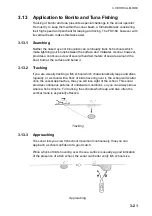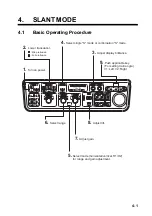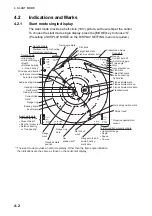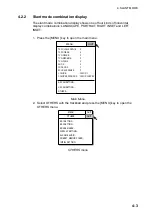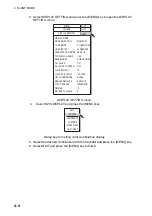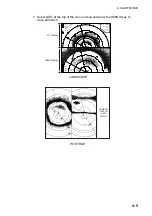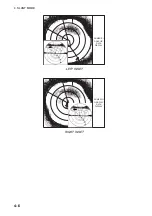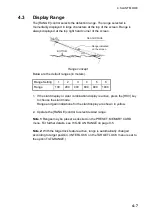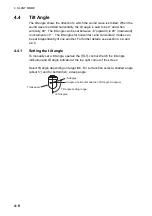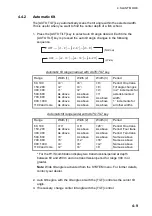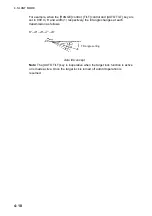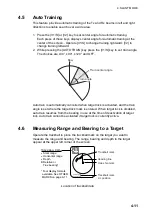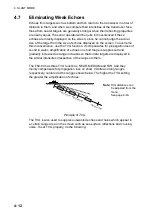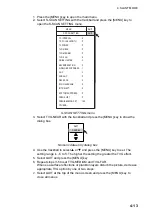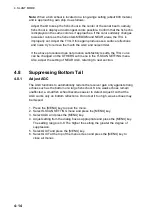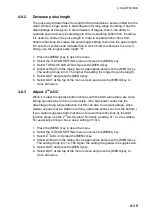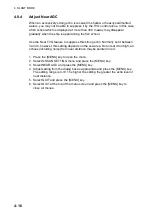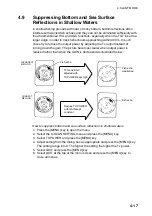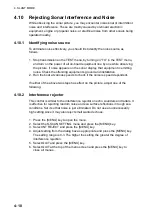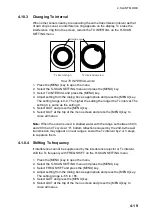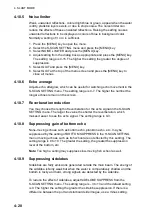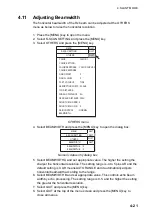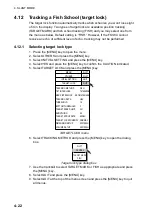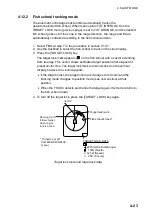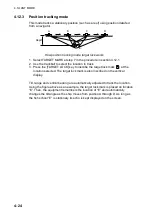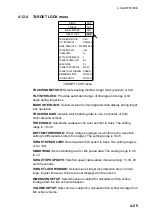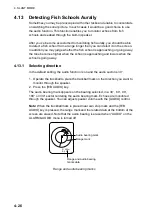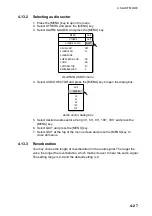
4. SLANT MODE
4-12
4.7 Eliminating
Weak
Echoes
Echoes from targets such as bottom and fish return to the transducer in order of
distance to them, and when we compare their intensities at the transducer face,
those from nearer targets are generally stronger when their reflecting properties
are nearly equal. The sonar operator will be quite inconvenienced if these
echoes are directly displayed on the screen, since he cannot judge the actual
size of the target from the size of echoes displayed on the screen. To overcome
this inconvenience, use the TVG function. It compensates for propagation loss of
sound in water; amplification of echoes on short range is suppressed and
gradually increased as range increases so that similar targets are displayed in
the similar intensities irrespective of the ranges to them.
The FSV-84 has three TVG functions, NEAR, MEDIUM and FAR, and they
mainly compensate for propagation loss on short, middle and long ranges
respectively, centered at the ranges shown below. The higher the TVG setting
the greater the amplification of echoes.
About 100 m
Near
Far
Med
About 400 m
About 800 m
Principle of TVG
The TVG is also used to suppress unwanted echoes and noise which appear in
a certain range area on the screen such as sea surface reflections and cruising
noise. To set TVG properly, do the following:
Note:
TVG distances can
be adjusted from the
menu.
See page 4-43.
Summary of Contents for FSV-84
Page 1: ...COLOR SCANNING SONAR FSV 84 ...
Page 6: ...SAFETY INSTRUCTIONS iv This page intentionally left blank ...
Page 34: ...1 OPERATIONAL OVERVIEW 1 18 This page intentionally left blank ...
Page 158: ...4 SLANT MODE 4 48 This page intentionally left blank ...
Page 194: ...8 CUSTOMIZING THE EQUIPMENT 8 10 This page intentionally left blank ...


